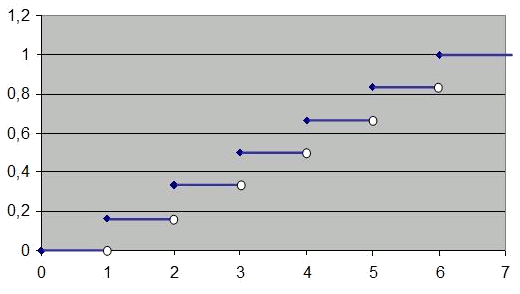The distribution function of a random variable
Example
For example, we will compute the distribution function of the random variable
The following table shows the values of
| x | F (x) |
|
|
|
|
|
|
|
|
|
|
|
|
|
|
|
|
|
|
|
|
|
The value of the function distribution in
This turns out to be quite intuitive, since the probability that the value of

Since it is a discrete random variable, the distribution function will be discrete. Note that the probability of obtaining a result lower than
